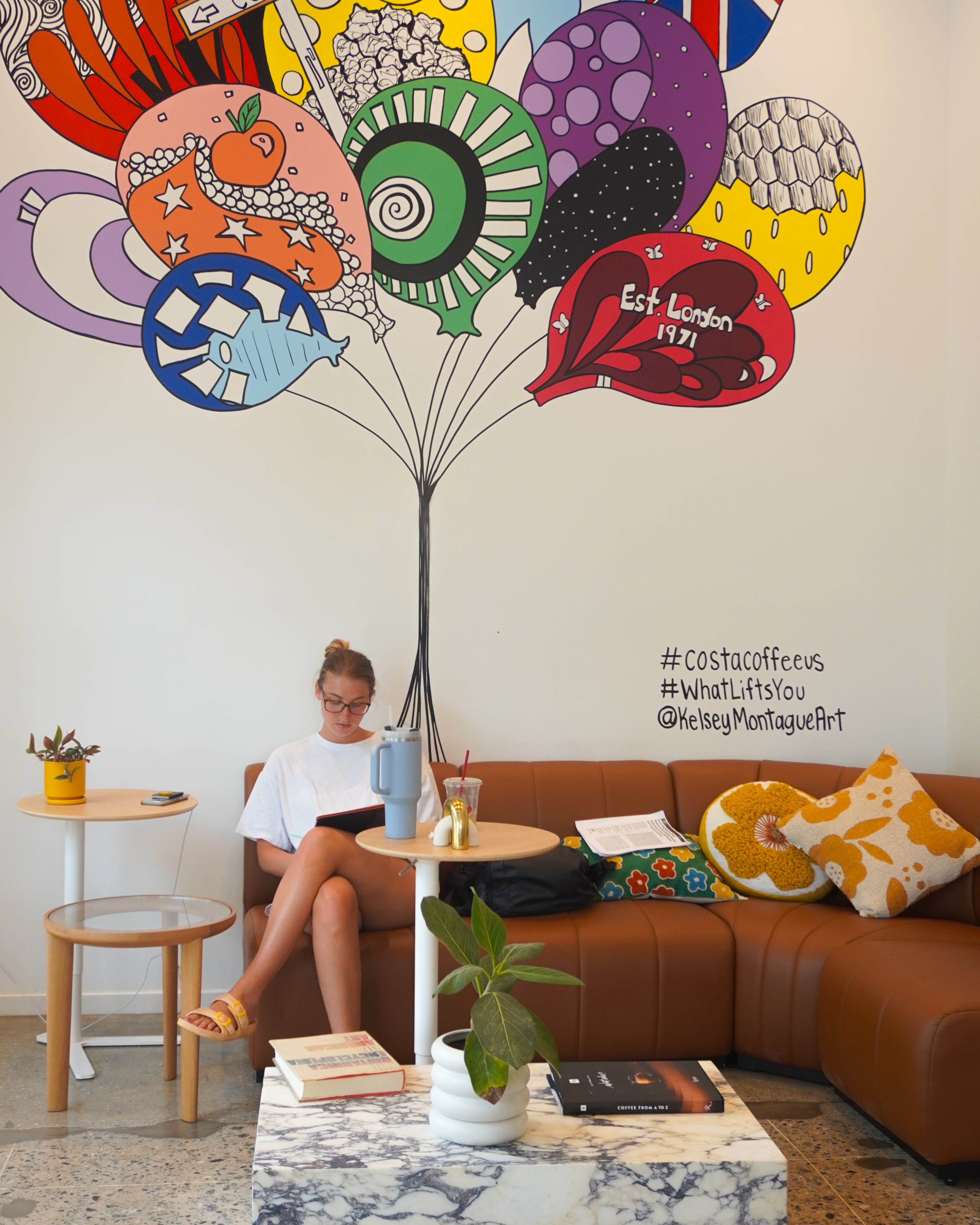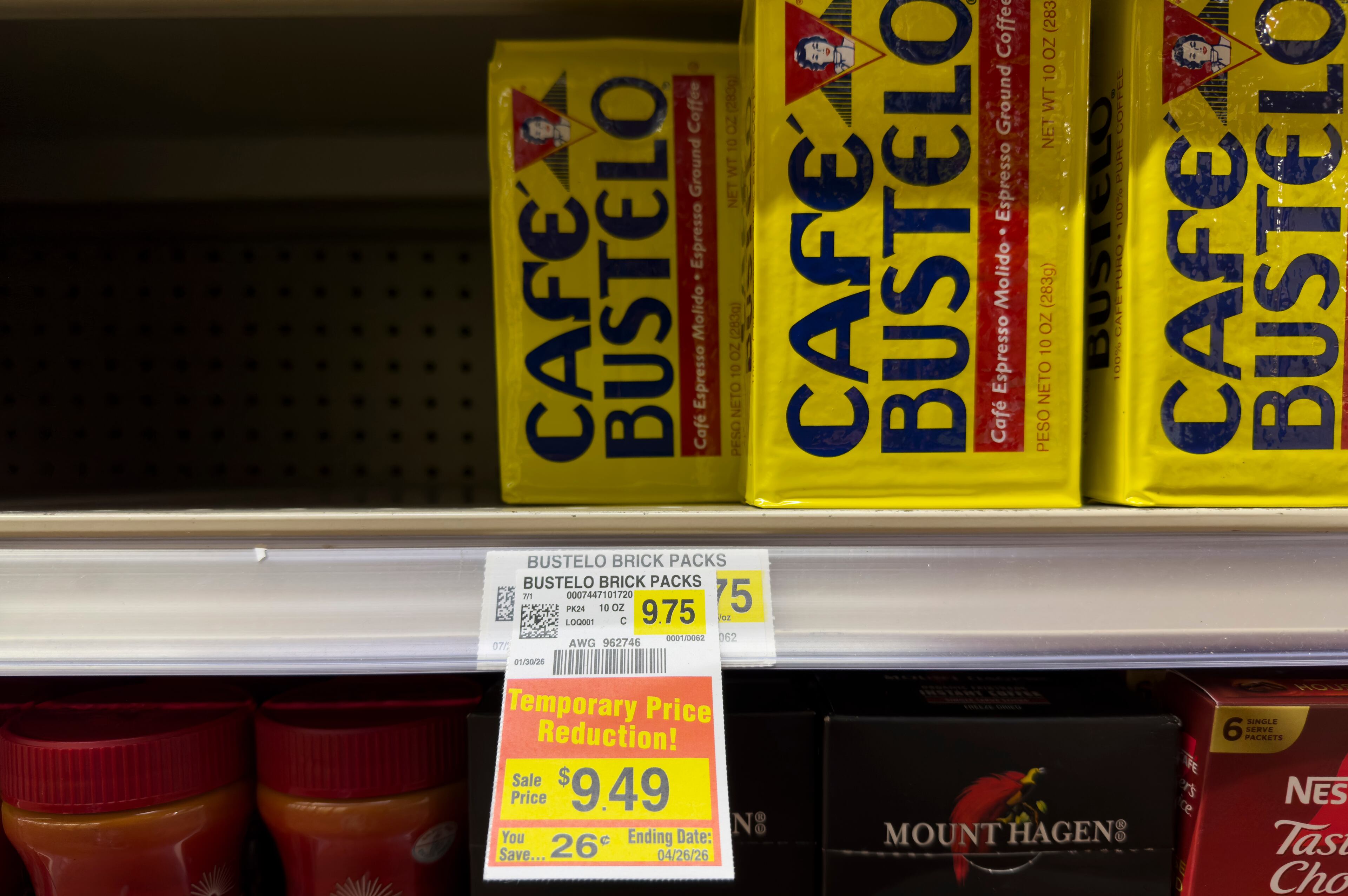Coca-Cola bet $5B on Costa Coffee. Here’s why it might be brewing up a sale.

Coca-Cola in 2019 closed on one of the largest acquisitions in its history.
The Atlanta beverage giant, best known for its carbonated sodas, paid roughly $5 billion for a leading British brand, Costa Coffee. It was part of Coca-Cola’s quest to become a “total beverage company” and offer every kind of drink.
“What we get with Costa is more than just a brand,” Coca-Cola CEO James Quincey said during a 2018 earnings call, shortly after the company said it would buy Costa Coffee. “It’s a platform that will give us the ability to scale within the $500 billion global hot beverage category.”
But six years later, it appears Coca-Cola’s investment has fallen flat. The company is working with investment bank Lazard to explore options for Costa Coffee, including a potential sale, British news organization Sky News first reported.
Quincey said in a July earnings call that Costa Coffee is “not where we wanted it to be from an investment hypothesis point of view” and that the company was “reflecting on what we’ve learned.”
It’s not clear yet if a deal for Costa Coffee could happen. A Coca-Cola spokesperson said the company doesn’t comment on “market rumors or speculation.” Lazard didn’t respond to a request for comment.
What is Costa Coffee?
Costa Coffee might not be well-known to many in Atlanta. It was founded in London in 1971 by Italian brothers Sergio and Bruno Costa. Today, it has a presence in 50 countries, with about 2,800 coffee shops in the United Kingdom and Ireland and about 1,400 elsewhere, including the U.S.
In buying Costa Coffee, Coca-Cola saw the opportunity to control a coffee supply chain and enter a big global market, said Duane Stanford, editor and publisher of industry publication Beverage Digest.
But the deal was about much more than owning coffee shops. Quincey said in earnings calls Coca-Cola planned to grow the business through vending machines, at-home products and canned drinks. Coke also sells Costa products to restaurant customers, including AMC Theatres.
“There are a lot of ways to work with immediate consumption customers to bring a coffee offering,” Quincey said during a 2018 conference call. “Then there’s the at-home market, whether that be pods, capsules, loose beans.”

Costa Coffee in 2022 began opening its first U.S. coffee shops in Coca-Cola’s hometown. The first location opened at the Coda building in Midtown’s Technology Square, near the company’s Atlanta headquarters.
Other locations include the Lee + White project in the West End, Town Brookhaven, Howell Mill Road in West Midtown and the Emory University campus.
Atlanta resident Marco Jovanovich, who is originally from Italy, said he was pleased to see Costa Coffee open in Atlanta.
“I was like, ‘Good, there’s a European coffee shop concept I like,’” said Jovanovich, senior director of product marketing for Middleby Outdoor. “I personally hate Starbucks.”
But Stanford said Coca-Cola only dabbled in U.S. retail locations.
“It’s never really gotten past a test and learn phase,” he said. “Getting people to either drop Starbucks or their local coffee shop to go for a concept that they’re not familiar with, unless they’re from Europe, is challenging.”
Headwinds
Soon after Coca-Cola purchased Costa Coffee, the COVID-19 pandemic hit.
Extended lockdowns in the UK closed retail stores, with Quincey saying in a 2020 earnings call that it was “one of the most affected parts” of the company.
“The reality is the timing was very unfortunate, getting it just before the pandemic,” Quincy said during a 2022 earnings call. “Despite all the experimentation, despite all the learning, despite all the initial steps, in big strategic terms, we haven’t advanced because essentially COVID put it on hold for three years.”

Stanford said when Costa Coffee’s retail business “evaporated” during the pandemic, it didn’t yet have an established at-home business.
“They really couldn’t take advantage of people being at home during COVID the way Keurig could,” he said, referring to the company that makes single-serve brewing systems. The health crisis “basically put a big hole right in the middle of their plan and they’ve just not recovered since.”
Following the pandemic, Costa Coffee’s margins were under pressure because of surging coffee prices, said Garrett Nelson, vice president and senior equity analyst at CFRA Research.
For consumers, the average price for ground roast coffee was more than $8 per pound in July 2025, according to the Federal Reserve Bank of St. Louis. In July 2020, it was about $4.50 a pound.
Plus, following the pandemic, “consumers have been much more price sensitive as their discretionary spending has been pressured by inflation,” Nelson said.
Jonathan Silver, founder of coffee and tea distributor Atlanta Coffee Supply Group, which was recently acquired, said the coffee industry “changed dramatically” for him after the pandemic as the costs to run a restaurant soared and dining preferences shifted.
“It’s just harder to run a restaurant now,” Silver said. “Food costs are high. Rent is incredibly high. Insurance is very high. Getting good staff is difficult. It’s a confluence of issues.”
Consumer tastes are also evolving, especially among younger people, Stanford said. Matcha has grown in popularity as an alternative to coffee, as have low-calorie energy drinks such as Alani Nu and Celsius.
“You had some siphoning of the coffee habit with young consumers into healthier, better-for-you, energy,” Stanford said.

Potential suitors
Investment groups are now circling Costa Coffee, according to reports from Sky News and Financial Times, which cite unnamed individuals.
Private equity firm TDR Capital, the majority owner of supermarket chain Asda, is exploring an acquisition, according to the Financial Times. U.S. private equity firm Apollo Global Management is also interested, according to Sky News.
TDR Capital declined comment. Apollo did not respond to a request for comment.
Costa Coffee could sell at a discount to what Coca-Cola paid to acquire it, Sky News reported, with a potential price tag under $2.7 billion. But it’s not known yet if Coca-Cola will decide to sell or, if it does, whether it would retain a stake in the company.
Though, under Quincey’s leadership, Coca-Cola has been “cutting bait” on brands that don’t work, Stanford said.
Coca-Cola has a portfolio of 30 billion-dollar brands. With its acquisitions, the company aims to connect with consumer needs, but “part of it is to be also very transparent about what didn’t work,” Henrique Braun, Coca-Cola chief operating officer, said during a Wednesday consumer conference.
In 2020, the company said it reduced its portfolio from 400 brands to 200 brands. More recently, Coca-Cola phased out Aha sparkling water to focus on the popular Topo Chico brand, Stanford said.
“You’re seeing a company that’s more willing to take these big bets,” Stanford said. “But then, if it’s not working or consumer winds change … they’ll cut it and move on.”
Editor’s note: This story has been updated to correct the spelling of the name of Coca-Cola CEO James Quincey.



